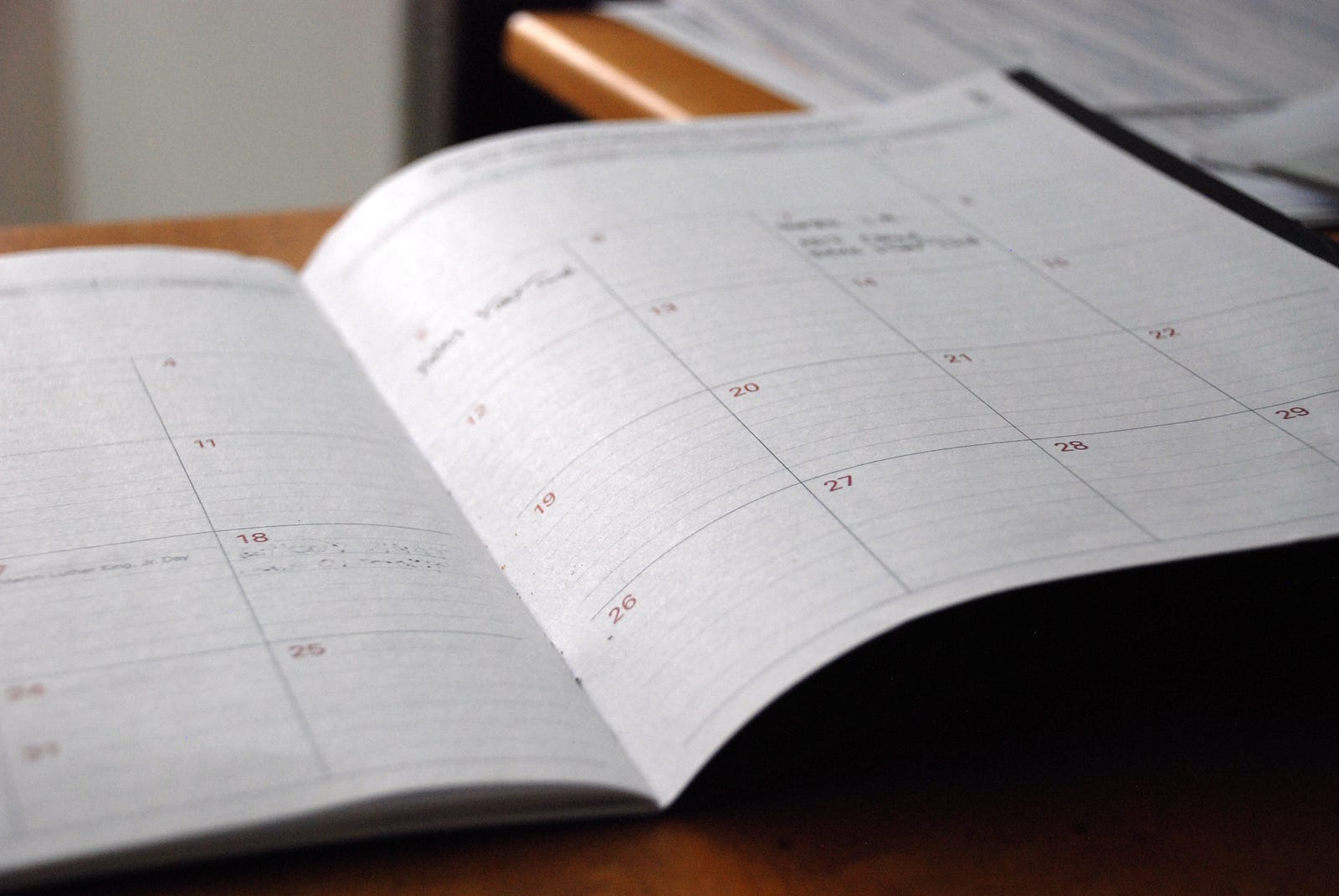“A year from now you may wish you had started today.”
— Karen Lamb
Eight years ago, I accidentally stumbled upon the topic of productivity — without even knowing it.
The reason I continued to explore this topic is rather simple — The skill of using your time efficiently is among the most crucial ones you can master.
There isn’t anything else in life (unless you are born with a silver spoon in your mouth) that can give you as much advantage and ability to design a life you want, so you can achieve the goals you have.
Over the years I intentionally continued to research and experiment with the best productivity systems successful people use and became pretty good at it.
By following this mindset and using various productivity techniques in different areas of my life — health, university, career, entrepreneurship, social life, adventure — I was able to get incredible results in each one of them.
However, it wasn’t until 2016, that I started my blog Zero to Skill, that I started writing on the topic.
Ever since, I’ve tried to share and showcase the most useful tips, hacks, rules, principles, systems, so you can use them on a daily basis to become more productive, and by default more successful — which means to increase your chance of accomplishing various goals.
Most of them are in The Ultimate Productivity Cheat Sheet.
But today, I wanted to select 10 of them which alone could provide you with the biggest leverage in life, as fast as possible.
Here they are, in the exact sequence that will give you compounded results.
1. Live a 24-Hour Life
“Carpe Diem (Seize the day).” — Horace
We, humans, are creatures of instant gratification, which means that we wantpleasure and results as soon as possible.
So, whenever you have a goal, you immediately start thinking about all of the tasks you need to do, and how long it will take you to finish each one of them.
You might even start taking action, but it often happens that you fall off the wagon because you don’t see results that fast, which additionally demotivatesyou to give it another go.
Instead of approaching it like this and having to kickstart your motivation every couple of weeks, I suggest that you set a goal you want to pursue, and then break it down into activities and habits that will help you accomplish said goal.
From then on, every morning you wake up, you should focus on the day ahead of you, to take action towards your goal(s), and achieve incrementalprogress.
Stop pondering about the past, and the mistakes you’ve made and failedattempts, and stop thinking about the future, and what will happen the next day, week or a month.
2. Commit to Your Health First
“Take care of your body. It’s the only place you have to live.” — Jim Rohn
Your day should begin here, but it doesn’t.
Most people are too busy to sleep well, create a healthy diet, or move enough.
The main reason we continue to neglect our health is that we don’t seeserious consequences right away, or even in weeks ahead, and this makes it more likely we’ll continue doing it.
To increase the level of your health, and by default the level of productivity, because you will be more energetic and focused, you need to make a deal with yourself.
No matter what happens in your life, HEALTH COMES FIRST — which means that you need to take care of yourself first before you engage in anything else.
There are only three things you need to keep in mind:
- Get enough sleep
- Create a healthy diet for yourself
- Move more
Make small actions every day, and let the compound effect do its thing.
3. Develop a Morning Routine
“My morning routine definitely sets the tone for my day. If I’m rushed and stressed in the morning, that will carry through my workday.” — Tessa Miller
The moment you open your phone or step outside of your home, you allow the external stimuli to affect your mental state and how your day will further develop.
That’s why it’s crucial, and I will repeat it, it’s CRUCIAL, that you take control and set the tone you want for the rest of the day.
The best way to do that is by establishing a morning routine for yourself, which aims to make you alert, help you take care of your health, intellectual and spiritual growth and gives you a quiet time to focus on your biggest goal.
You do this by developing two types of habits:
- Habits that can improve quality of your life in the present
- Habits that can improve the quality of your life in the future
Ideally, you should focus to form habits that give you both — such as exercising, and by doing so, you will start seeing a change both in the present and the future.
4. Clarify Daily Priorities
“The key is not to prioritize what’s on your schedule but to schedule your priorities.”- Stephen Covey
Having clarity on what exactly will you be working on that day, and in whatsequence you will complete each task, is probably one of the most important things that will help you stay focused and reduce possible distractions.
The main reason why this is important is because not knowing priorities, or just kinda knowing them, makes us random and it takes us a longer time to get to actual work.
Instead of having to decide on these things in the morning and losing preciouswillpower and decision-making ability, map it out the night before, with these questions:
- What are my top priorities for tomorrow?
- In what order will I complete each one of them?
- How much time do I need to commit to each task?
Then, when you wake up, just look at the list, and start executing one priority at a time.
5. Block Time
“You will never ‘find’ time for anything. If you want time, you must make it.”
— Charles Buxton
Learning how to protect your time at all cost from possible time thieves is essential.
That’s why, when you define your priorities and how much time you need for each one of them, decide when in your schedule you want to commit a specific chunk of your time, to execute these priorities.
By dedicating a specific time to just one task, you “block off” your time (and your mind) from other interruptions and projects — that would otherwise demand your attention.
You will find that even three 60 minute blocks of actual work can deliver more results than a standard 8-hour workday — and sometimes even two.
6. Gamify the Process With The X Method
“We are what we repeatedly do. Excellence, then, is not an act but a habit. “
— Aristotle
The majority of goals people pursue don’t require innate talent, or working a 12-hour a day — in most cases they lack old-fashion consistency.
This is where the X Method comes in handy since it’s probably the easiest, yet the most effective way to establish new behaviors or eliminate them.
All you need to do is take a big wall calendar that has an entire month on it, and place it somewhere visible.
For each day that you do the positive behavior or stay away from doing a negative one, you get to put a big X on that day.
This works well because, after a week or two, you’ll have a chain, and you’ll like seeing that chain of X’s, so much so that you will do almost everything you can to maintain it.
From that point on, your only job then becomes not to break the chain.
Don’t break the chain!
7. Crush Procrastination by Deconstructing Tasks
“Procrastination is the art of keeping up with yesterday.” — Don Marquis
Just like me, you probably have a problem with procrastination, or to be more specific, getting yourself to take action — not the actual work itself.
So, when you need to do something, and you start feeling that initial resistance, program yourself to break the task at hand into smaller pieces immediately, and just get yourself to do the first one in the sequence.
For example — Going to the gym — becomes:
- Preparing your gym gear
- Putting your clothes on
- Leaving your home
- Getting to the gym
- Putting your gear on
- Warming up
- Doing each exercise set (this can be further broken down)
- Stretching
In most cases, finishing the first task will trigger a momentum, and that will make it easier to complete the remaining mini-tasks, and by default theprimary activity you started with — which in this case is a successful gymsession.
And it all started with placing some gear in the bag.
Now, just take any task you tend to procrastinate on the most and apply this suggestion.
8. Fight off Four Types of Distractions
“Distractions destroy action. If it’s not moving towards your purpose, leave it alone.” — Jermaine Riley
Everything around you is designed to steal your attention and with it your most valuable resource — time.
That’s why it’s essential to learn how to shield yourself and develop your ability to focus on command.
You will need to fight off four types of distractions, and below are various ways to deal with each one of them.
Mental Distractions
Consider mental distractions to be any thought unrelated to the task at hand.
One of the first ways you can regain mental clarity is to simply breathe, as it will help you center your thoughts — no matter how cliche it might sound.
Next to breathing, ask yourself following two questions:
- What should my focus be?
- Is this worth my time?
Questions are a great way to reach the logical part of our brain and let it find the right answers naturally.
The next thing you can do is meditation, which is a great way to refresh your mental state, and if nothing, just to zone out and catch your breath.
Physical/Environmental Distractions
When we are not as invested in the task at hand, we often act as CROWS; we look for anything shiny around us that will distract us from doing work.
That’s why you need to declutter your environment and make sure that you minimize physical distractions.
First, divide your workspace into a primary and a secondary work area.
From the primary, remove everything unessential, all the things you’re not using on a daily basis. All the things you use on a weekly/monthly basis should go to the secondary work area.
Those can be like books, cables, printer, photos, staplers, and other items you don’t use as often.
The fewer items are in your immediate proximity, the less you will be pulled away from the task at hand.
Digital Distractions
Once again, you can follow the rule of making it difficult to access something.
For your phone, I suggest you delete every app that doesn’t contribute any of your goals, and is just a waste of time. Then place the applications you use on a daily basis on your first screen, move everything else to the second and third screen — making it more difficult to access.
Whenever you work, place your phone out of the arms reach, and turn off the internet, so you don’t get notifications.
For your computer, you can install software called SelfControl (source) a free Mac application to help you avoid distracting websites, for Windows thealternative is Cold Turkey (source).
Or you can install extensions called StayFocusd (Source) or Gofuckingwork (source) — both are free and work well.
When it comes to emails and social media, I suggest you create rules for yourself to check them only at a specific time of the day.
I try to not to open social media apps at least first hour or two, and check emails twice a day, responding right away.
Social Distractions
Now, this is something you don’t have that much control over, but you can still do a couple of things that might help you reduce them.
First is to communicate your style of working to people, and expectations — this usually does the trick.
Secondly, you can use your headphones — even placing them on your ears will make people assume that you are not to be disturbed.
9. Trigger the State of Flow
“The happiest people spend much time in a state of flow — the state in which people are so involved in an activity that nothing else seems to matter; the experience itself is so enjoyable that people will do it even at great cost, for the sheer sake of doing it.”
- Mihaly Csikszentmihalyi
Every person has been in the ZONE.
When you’re in there, nothing else exists, it’s just you and the task at hand.
What the majority of people seem to miss is that this state is something you can learn to trigger on command and develop a habit of using it on a daily basis.
However, first you need to look back and determine how you’ve entered the state of flow before, so that you can pinpoint the underlying pattern.
These questions might be useful here:
- When is the last time I was in the zone?
- Why was I so deeply focused?
- What elements helped me reach that level of immersion?
For me, my laptop, a big screen in front of me, and music with a fast beat are enough to get me into the state of flow.
What works for you?
10. Evaluate Your Day
“Every evening, just before hitting the bed, I would ask myself: Have I earned the bread for the day?” — Zdravko, my late grandfather
We are often caught up in the everyday environment and the dynamic nature of our lives, so the time passes by faster than ever.
Because of this, it makes a lot of sense to continuously pull yourself back andevaluate how well you’ve executed your plan in the previous period, so you can improve it based on the insights you’ve gathered.
Try to make it a habit just before you go to bed. Take some time to evaluate your day and see what can you do better in the morning.
Also, every week you should set aside 30 minutes to analyze the previous week and plan out the next one.




Comments
Post a Comment